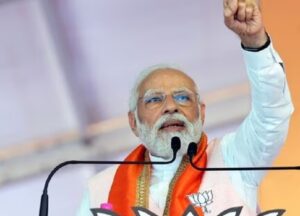Study published in ‘The Lancet’ highlights regulation of junk food ads for kids

Study published in ‘The Lancet’ highlights regulation of junk food ads for kids
By: Pune Pulse
December 12, 2023
Pune: A study published in The Lancet highlights the need for a strong regulatory framework in India to protect children from being exposed to advertisements promoting high-fat, salt, and sugar (HFSS) foods. These advertisements often depict these consumables as enjoyable, carefree, and thrilling.
The research highlights the importance of clearly defining ‘junk food’ due to the adverse effects of promoting HFSS foods on consumption habits, especially among young children.
This ultimately results in higher long-term risks of weight gain, being overweight, developing obesity, and non-communicable diseases.
The study, which was published in The Lancet Regional Health-Southeast Asia, highlights the prevalence of single TV households in India. It also points out that TV co-viewing is most common between 6 pm and 11 pm.
According to the study, limiting the display of HFSS advertisements during this time frame could potentially decrease children’s exposure to such advertisements.
A study published in The Lancet highlights the importance of implementing a strong regulatory system in India to protect children from the influence of high-in-fat, salt, and sugar (HFSS) food advertisements.
These advertisements often depict these consumables as enjoyable, carefree, and thrilling, making it crucial to establish guidelines to shield children from their harmful effects.
The study also emphasizes the significance of defining ‘junk food’ as the marketing of HFSS foods has a detrimental impact on consumption habits, especially among young children. This ultimately leads to an increased risk of weight gain, overweight, obesity, and non-communicable diseases throughout their lifetime.
The study, which was published in The Lancet Regional Health-Southeast Asia, highlights the prevalence of single TV households in India. It also points out that TV co-viewing is most common between 6 pm and 11 pm. According to the study, limiting the display of HFSS advertisements during this time frame could potentially decrease children’s exposure to such advertisements.
Nevertheless, the researchers have stated that among the nine obligatory policies, the sole one that limits the promotion of HFSS food to children across all forms of media is the Guidelines for Prevention of Misleading Advertisements and Endorsements for Misleading Advertisements, 2022.








